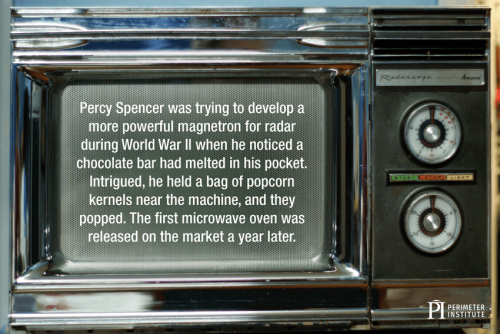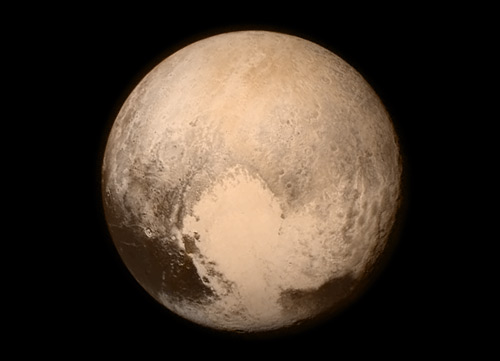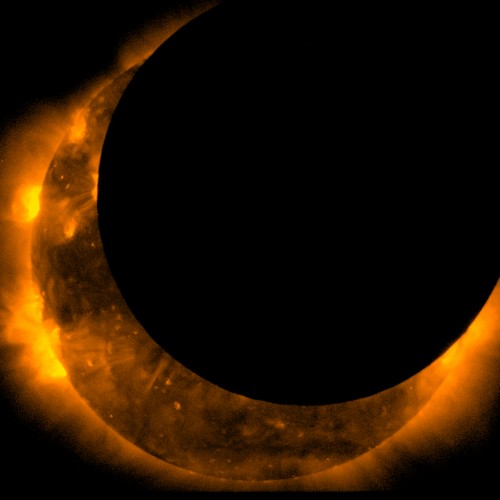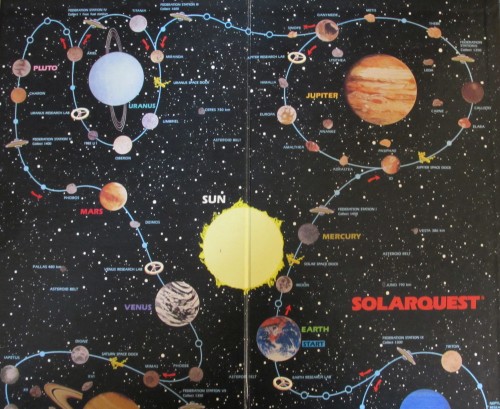Tag archives: space observation
Lucky physicists, runways renamed as magnetic poles shift, what happened to the Zuma spacecraft?

Lucky ping: the invention of the microwave oven. (Courtesy: Perimeter Institute)
By Hamish Johnston
“In the fields of observation, fortune favours the prepared mind,” is a quote attributed to Louis Pasteur and it encapsulates the role of luck in scientific investigation. The Perimeter Institute for Theoretical Physics in Canada has put together a list of eight scientific breakthroughs that benefited from a little luck. Examples include Ernest Rutherford and colleagues measuring alpha-particle backscattering when they were really interested in how the particles travelled through the target – which resulted in the discovery of the atomic nucleus. But my favourite is how the microwave oven was invented, as described above.
View all posts by this author | View this author's profile
US candidates on science policy, your satellite idea could bag a share in £50,000

No denying: Democratic Party candidate Elizabeth Moro. (Courtesy: Elizabeth Moro)
By Hamish Johnston
The Science Debate organization sent out questions about science policy to candidates in the 2018 US elections and the answers are in (at least some of them). Prospective US representatives, senators and state governors were queried on 10 topics ranging from climate change to the importance of science to American prosperity.
James Henry, a Democratic Party candidate in Florida, pointed out: “If you look at your monthly credit card statement and remember the kinds of products and services you spent your money on recently, many of the items purchased probably did not even exist 10 or 20 years ago.” This, he added, is why “It is critical that the government encourage a proactive approach to technology”.
View all posts by this author | View this author's profile
Mercury’s transit across the Sun has begun, check out our guide on how to view it safely
By Hamish Johnston
The transit of Mercury across the face of the Sun has begun. Alas here in Bristol the skies are grey and I have been watching a live feed of the transit from the Royal Observatory in Greenwich – which has been blessed with clear skies. That’s a real shame, because I had brought a small telescope into work and I was looking forward to projecting a magnified image of the Sun onto a screen to see the transit for myself.
View all posts by this author | View this author's profile
Solarquest, Pluto and the importance of New Horizons
By Margaret Harris
Last night, in honour of the New Horizons mission to Pluto, I pulled out my copy of Solarquest. This classic board game was a childhood favourite of mine, and it’s basically Monopoly in space: instead of buying properties named after streets in Atlantic City, New Jersey (or London, if you’re British), you buy planets, moons and artificial satellites. Then, when your fellow players land on an object you own, you charge them rent.
Such nostalgia is all well and good, I hear you say, but what’s it got to do with New Horizons or Pluto? Well, Solarquest’s inventors clearly took their science seriously. By board game standards, there’s quite a lot of physics in it. For example, you can’t leave a planet unless you roll a number high enough to overcome its gravitational pull, and its Monopoly-like property deed cards include facts about each planet and moon as well as their prices.
Pluto fly-by: New Horizons sails past cold, distant world

Perfect view: the sharpest image of Pluto to date taken by the New Horizons spacecraft. (Courtesy: NASA)
By Tushna Commissariat
After trundling through our solar system for more than 10 years, NASA’s New Horizons mission made its closest approach to the dwarf planet Pluto earlier today, at 12:49 BST. It was a mere 12,472 km from the planet’s surface – roughly the same distance from New York to Mumbai, India – making it the first-ever space mission to explore a world so far from Earth.
If you want to find out more about the New Horizons mission, read this recent news story by physicsworld.com editor Hamish Johnston. Above is best close-up view of this cold, unexplored world that the spacecraft sent back before its closest approach (when it was still 766,000 km from the surface), revealing in clear detail many of the planet’s surface features, including the “heart” at the bottom.
View all posts by this author | View this author's profile
Balloon-borne experiment will reveal how cosmic rays damage computer memories
By Tamela Maciel at the APS April Meeting in Baltimore, Maryland

Little bits: the CRIBFLEX logo. (Courtesy: Drexel University Society of Physics Students)
A group of undergraduate students at Drexel University in Philadelphia is ready to click “confirm” on an Amazon order that will include a weather balloon, a memory storage device, a GPS, a Geiger counter and a BeagleBoard computer (described to me as a “beefier version of Raspberry Pi”). For less than $2000, this team of physics, engineering and computer-science students plans to launch a weather-balloon experiment that will measure the effects of cosmic rays on DRAM memory devices at high altitudes.
The team is part of the Drexel University Society of Physics Students and the members presented their experiment design at the April Meeting of the American Physical Society in Baltimore, Maryland, last weekend.
DRAM is a very quick and simple type of electronic memory – each bit takes the form of a capacitor that either has charge or doesn’t, according to whether it’s storing a zero or one. Unfortunately, this simple design can make the bits very sensitive to radioactivity or cosmic rays, which can cause bits to flip values and introduce “soft errors” into the data.
Guide to the solar eclipse

Solar eclipse of 2012, which darkened parts of the US and south-east Asia. (Courtesy: JAXA/Hinode)
By James Dacey
On Friday, our old friend the Moon will swing by to remind us that she’s not just there to reflect the Sun’s light; she can sometimes block it out too. A total solar eclipse will be visible to those lucky few people living in the Faroe Islands or the Norwegian archipelago of Svalbard. Many others across Europe, North Africa and Russia will be treated to the (almost as good) spectacle of a partial solar eclipse.
View all posts by this author | View this author's profile
